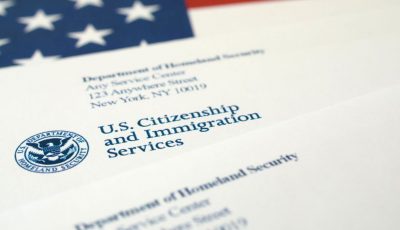DHS: Advance filing prevents unscrupulous employers
DHS counsel says CUC’s assertion that USCIS CW-1 regulation results to preferential treatment has no merit
The Commonwealth Utilities Corp.’s assertion that U.S. Citizenship and Immigration Services’ rule requiring the filing of CNMI-only transitional workers visa (CW-1) extension petitions earlier than six months in advance of the requested worker’s start date results in “preferential and unequal treatment” of visa petition beneficiaries is “without merit.”
Office of Immigration Litigation assistant director Glenn M. Girdharry, counsel for Department of Homeland Security Secretary Jeh Johnson and co-defendants in CUC’s lawsuit, pointed out that USCIS’ rule requiring all employer-petitioners to file CW-1 extension petitions no earlier than six months in advance of the requested start date is based on a reasonably conceivable state of facts that provides a rational basis for the agency’s rule.
Girdharry said CUC and its affected CW-1 workers cannot plausibly argue that they can negate every conceivable state of facts that could provide the rational basis for USCIS’ “six-month in advance” filing rule.
Girdharry discussed the matter in Johnson’s and co-defendants’ reply brief in support of their motion to dismiss the lawsuit filed by CUC and its affected CW-1 workers.
Girdharry said requiring employer-petitioners to file extension requests no earlier than six months before the requested start date of the alien worker provides a reasonable time for the employer to determine that no U.S. worker is available for intended position, thereby upholding the integrity of this domestic job market check before introducing foreign labor.
Additionally, Girdharry said, as CW-1 visas are limited each fiscal year, the six-month period helps prevent unscrupulous employers from obtaining a CW-1 visa number and “shelving” the approval significantly before they face an actual need for the services of a CW-1 worker (thereby precluding other petitioners from obtaining that visa number).
Further, he said, USCIS encourages employers to file extension requests six months in advance and “as soon as possible within that time frame to prevent gaps in employment authorization.”
Finally, Girdharry said, as processing of all CW-1 petitions occur at a USCIS Service Center in the continental U.S., filing six months in advance allows ample time for employers in the CNMI to use economic delivery methods to send extension petitions to USCIS for the agency to process and adjudicate the incoming petition, and if it is approved, return the approval notice via U.S. mail to the employer.
Accordingly, he said, plaintiffs fail to state a claim for relief under the equal protection clause of the U.S. Constitution.
Therefore, he said, the court should dismiss the plaintiffs’ equal protection claim in its entirety.
Girdharry also asserted that the DHS Secretary’s discretionary authority to reduce the number of CW-1 workers in the CNMI to zero by the end of the CW-1 transition period is derived from statute, not regulations.
From the start of this litigation, defendants have maintained that the DHS secretary’s discretionary authority is derived from statute, not regulations, Girdharry said.
He said Congress has explicitly charged the DHS Secretary with the administration and enforcement of all laws relating to immigration and naturalization of aliens, and gave the secretary broad discretion to regulate the employment of CW-1 nonimmigrant workers during the transition period in the CNMI.
Girdharry said USCIS did not deprive CUC and its affected CW-1 workers of any due process rights because the agency complied with its regulations and applied the correct procedures to the CW-1 extension petitions CUC submitted after the fiscal year 2016 visa cap had been reached.
In opposition to Johnson’s and co-defendants’ motion to dismiss the lawsuit, CUC has stated that USCIS’ regulation and policy on the CW-1 have resulted in an unequal and preferential treatment.
CUC legal counsel James S. Sirok pointed out that the manner in which CUC is restricted in filing its renewal petitions for its 13 CW-1 workers results in unequal treatment of it and its petitions, as well as the individual workers.
Sirok said this is because those CW-1 petitions, which can be filed during the beginning of a fiscal year, will not be affected when the CW-1 cap number is reached during the middle or ending months of a fiscal year as will CUC’s petitions.
USCIS regulation restricts the filing of a CW-1 petition to no earlier than six months prior to the expiration of the CW-1 status or prior to the actual need for the beneficiary’s services in the case of a new hire.
As a result of the preferential treatment, because of the filing restriction rule, CUC and its affected CW-1 workers were treated unequally, Sirok said.
CUC employs over 300 workers, including 42 nonresident workers. They are suing Johnson and others for not acting on their CW-1 permit renewals.
Aside from Johnson, plaintiffs are also suing U.S. Immigration and Customs Enforcement Director Sarah R. Saldan, and U.S. Citizenship and Immigration Services Director Leon Rodriguez.
Sirok alleged that the failure of USCIS to make a determination on the CW renewal petitions violates the Administrative Procedure Act.
Sirok said CUC will be adversely affected by the loss of these CW-1 workers in its ability to maintain and operate its power generation facilities on Saipan, Tinian, and Rota.



























